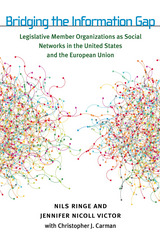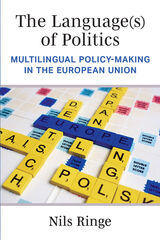
Legislative member organizations (LMOs)—such as caucuses in the U.S. Congress and intergroups in the European Parliament—exist in lawmaking bodies around the world. Unlike parties and committees, LMOs play no obvious, predefined role in the legislative process. They provide legislators with opportunities to establish social networks with colleagues who share common interests. In turn, such networks offer valuable opportunities for the efficient exchange of policy-relevant—and sometimes otherwise unattainable—information between legislative offices. Building on classic insights from the study of social networks, the authors provide a comparative overview of LMOs across advanced, liberal democracies. In two nuanced case studies of LMOs in the European Parliament and the U.S. Congress, the authors rely on a mix of social network analysis, sophisticated statistical methods, and careful qualitative analysis of a large number of in-depth interviews.

Multilingualism is an ever-present feature in numerous political contexts around the world, including both multilingual states and international organizations. It is also an increasingly important reality in a globalized world that consequential political decisions are negotiated between politicians who do not share a common native language. Nils Ringe uses the case of the European Union to investigate how politicians’ reliance on shared foreign languages and translation services affects politics and policy-making. In-depth interviews with almost 100 policymakers and language service providers in the EU’s main institutions, paired with quantitative and linguistic data, show multilingualism to be an inherent, ubiquitous, and consequential feature of EU politics and vividly illustrate how it influences political interactions, deliberations, and negotiations.
Existing research at the intersection of language and politics would suggest that multilingualism makes EU politics more conflictual. This is not the case, however. Instead, multilingualism depoliticizes policy-making, meaning that it reduces its political nature and potential for conflict. That is because both foreign language use and reliance on translation result in communication that is simple, utilitarian, neutralized, and involves commonly shared phrases and expressions, which masks the national and political backgrounds, preferences, and priorities of EU actors. Policymakers also tend to disregard politically charged language because it might not reflect what a speaker meant to say, and they are constrained in their ability to use vague or ambiguous language to gloss over disagreements by the need for consistency across languages.
READERS
Browse our collection.
PUBLISHERS
See BiblioVault's publisher services.
STUDENT SERVICES
Files for college accessibility offices.
UChicago Accessibility Resources
home | accessibility | search | about | contact us
BiblioVault ® 2001 - 2024
The University of Chicago Press









